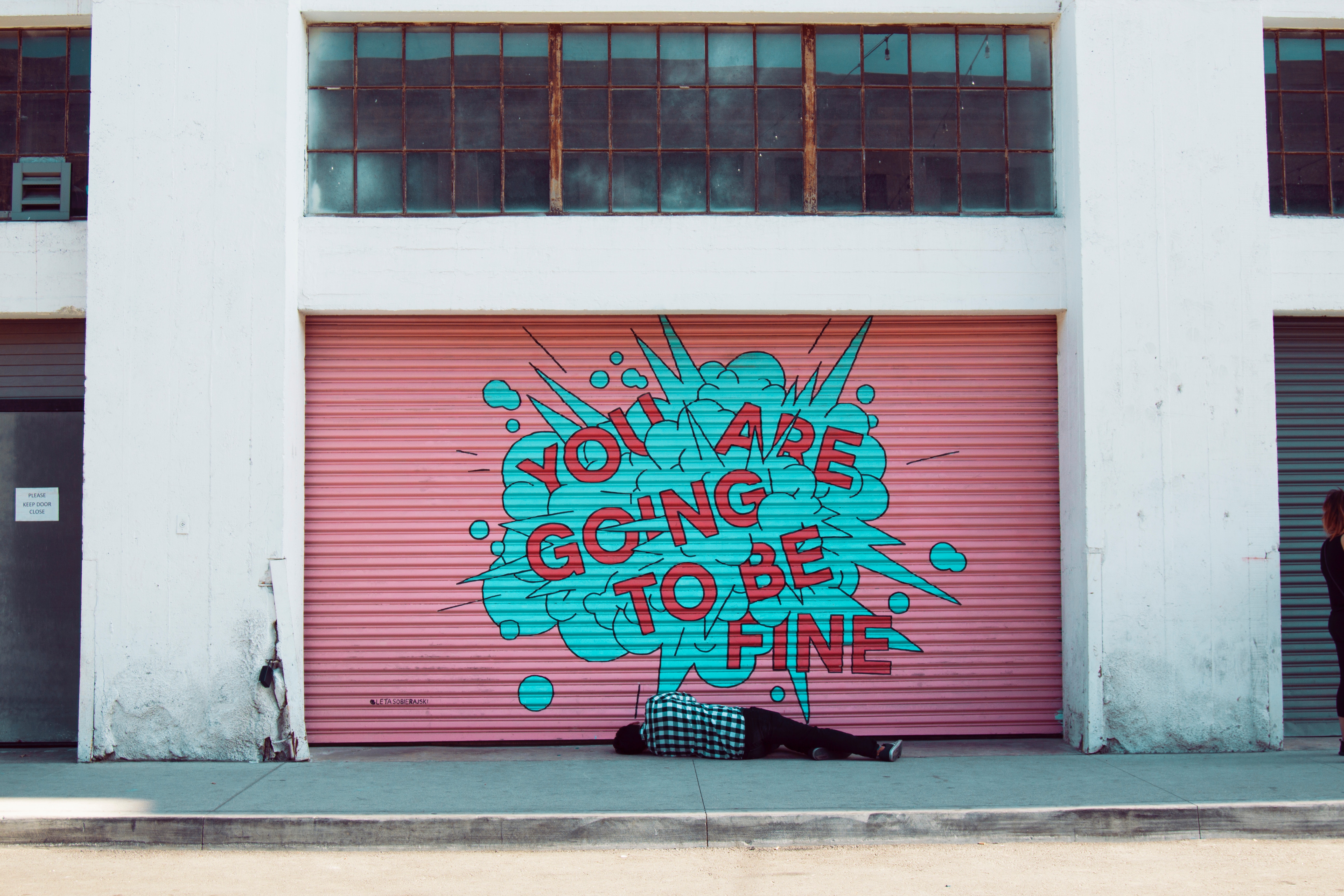
A history of getting along
I often struggle with the thought of something that I see fairly regularly, over agreeableness. You see when I was younger and starting in the world I had a fairly strong need to get along with everyone. It was my way of dealing with the world based on the lesson my Grandmother taught me very early on in life, treat others as you want to be treated. I remember feeling like the real trick to being successful in this world was to try to disarm the largest amount of people I could with that good old Texas charm. It was just my way, and it worked… for a while.
When I started at Nielsen as a market research rep, I was a 22-year-old goofy kid that had just finished school and moved from New Braunfels to the big city of Austin. Ready to take on my first real job in corporate America. I was pretty good at my job, I worked reasonably hard, had some ambition, but where I shined was I tended to get along with most people. On a team of all kinds of personalities in our Austin office, I became friends with everyone, even the guy that struggled to get along with anyone. and the equaled results.
This served me well. A kid that showed up, worked reasonably
Still moving through life thinking I’m some guru of personalities and turning even the hardest of people to friends by just being so darn nice they wanted to be nice back to me, I maneuvered my way into a perfect spot. I was a manager at a fortune 500 company, good career, good friends, married with a child, a beautiful home, I had it made.
When things get tough
That’s when what usually happens in life, well, happened. The Great Recession of 2008 pretty much gutted my respected company to the point where we were laying off 20% to 30% of our staff yearly. Not to mention my marriage was failing and I lost my grandmother, all in a matter of 12 months or so. Needless to say, 2008 was quite a challenge for me, but it was during this time after coming through the fog that I learned several key things I had been doing in my life that I thought were sound strategies were in fact, pretty stupid. One of the biggest was this naive belief that being agreeable was some sort of strategy to be used to be successful in life.
I realized during this time that I wasn’t truly anything of substance. Sure I was well-liked, but what did I stand for? What business ideas or principles did I hold in my life that I was willing to fight for? Where were the values and beliefs that I was to look to when the world around me was cratering because of economic chaos and personal struggles? Could I articulate them and speak to them when I was faced with some of the hardest decisions of my life.? They weren’t there. There was nothing there for me to fight for. Even at Nielsen, a place where I came up from for almost 14 years, I looked around one day and asked myself what I had done? How was I better? What did I fight for in that time and advocate
So I’ll spare you the motivational speech about how I turned that around. The TL;dr version is that I went back to school, earned my MBA, changed companies, moved careers, and completely changed my perspective on how to go about my life. People that know me now know where I’m at with locus of control and ultimate accountability, but that old weakness that I still reflect on because I see myself tend to fall back into at times is agreeableness.
I still today see people that I know are stuck in that rut. They are over agreeable. They are the greatest of people to be around or to be on a team, but they struggle to advocate for themselves or the company. They love people and show empathy that few others have, but they are repeatedly taken advantage of or looked passed on important projects. I guess we all do it at times, you know, that moment when you’re in a meeting and someone says something that you know is wrong or incorrect, but you don’t say anything out of fear of being viewed as burdensome or combative. Why is that? Is it our fear of falling victim to someone’s agenda because we spoke up about something we disagreed with? Politics gone awry? Being an outsider because you spoke up? Or is it something even worse?
Is the fear that we know deep down we’re incompetent in areas that we don’t want to expose, so we use agreeableness to try to get by? The good old “I’m not really all that good at my job and I don’t want anyone to know that, so I’m just going to go along
Isn’t that easy? Why can’t we do that more? Why don’t we give our ideas and thoughts the respect and voice that they deserve? It’s in this moment when we do that we are standing on our own feet. We’re taking control of our lives and putting ourselves out there in a way that no recession, or divorce, or loss of a parent will ever silence. Taking risks in life by giving our ideas legs and the power to drive real change. Those very ideas and principles that we can articulate in a way that is impactful even if they disagree with other views are the things that will carry us through when the world turns upside down like it tends to do.
That’s not virtue
We’re currently living in a time of over agreeableness. in my estimation. I see a plague of virtue signaling everywhere I go. The PC culture is based on some idea that we can’t disagree with people out of fear of hurting feelings and making people feel unwelcome. To me, there is nothing more disrespectful than not only being over agreeable with people for self-preservation but doing it as some virtuous dog whistle is about the most disingenuous thing you can do, whether that be at work or in your personal life. It’s not honorable, and it’s not progressive, it’s dangerous and disrespectful. People don’t want to be placated; they want to be heard, respected, and productive. Just agreeing to be safe and avoid discourse is the opposite of that.
It’s time to realize that we are living in a time when being passionately disagreeable in a respectful way is essential. The rate of change in the workplace has never evolved faster than it does today. People are struggling to figure things out. The current political climate is in the same boat. People need to be able to honestly disagree to move forward and to
The need for educated and articulate ideas to be spoken in circles where there will be disagreement has never been more important. To be able to speak to your thoughts and the future you’re moving towards like they have already come to fruition is the strongest skill you can build in today’s world. So take some time tomorrow and think about what it is that you have been hiding. What is the business idea or cultural norm that you are questioning that you need to understand better? Figure those things out and then start learning more on them that you can get to that point where you can say more often “I understand where you are coming from, but I disagree and this is why” and mean it. You owe it to yourself and

“I strenuously object?” Is that how it’s done? Hm? “Objection, your Honor!” “Overruled” “No, no. I STRENUOUSLY object.” “Oh! You strenuously object. Then I’ll take some time and reconsider.” — Sam Weinberg, A Few Good Men
There’s a strange dichotomy between the social contortions folks will put themselves through in person to curry favor, versus the verbal evisceration they’ll publish on the Web to get more likes. Nonetheless, groupthink and fear influence both forums… but we can strive to be braver, for better accountability, honesty, and ideological integrity.
Well stated Royce.